History professor and ACLS Frederick Burkhardt Residential Fellow Katherine Grandjean talks to UConn’s podcast about her new research. Listen: here.
News
Arabic Medicine Humanities Talk
A fascinating talk by leading medievalist Joël Chandelier who will be presenting his recent book about the teaching of Arabic medicine in medieval European universities.
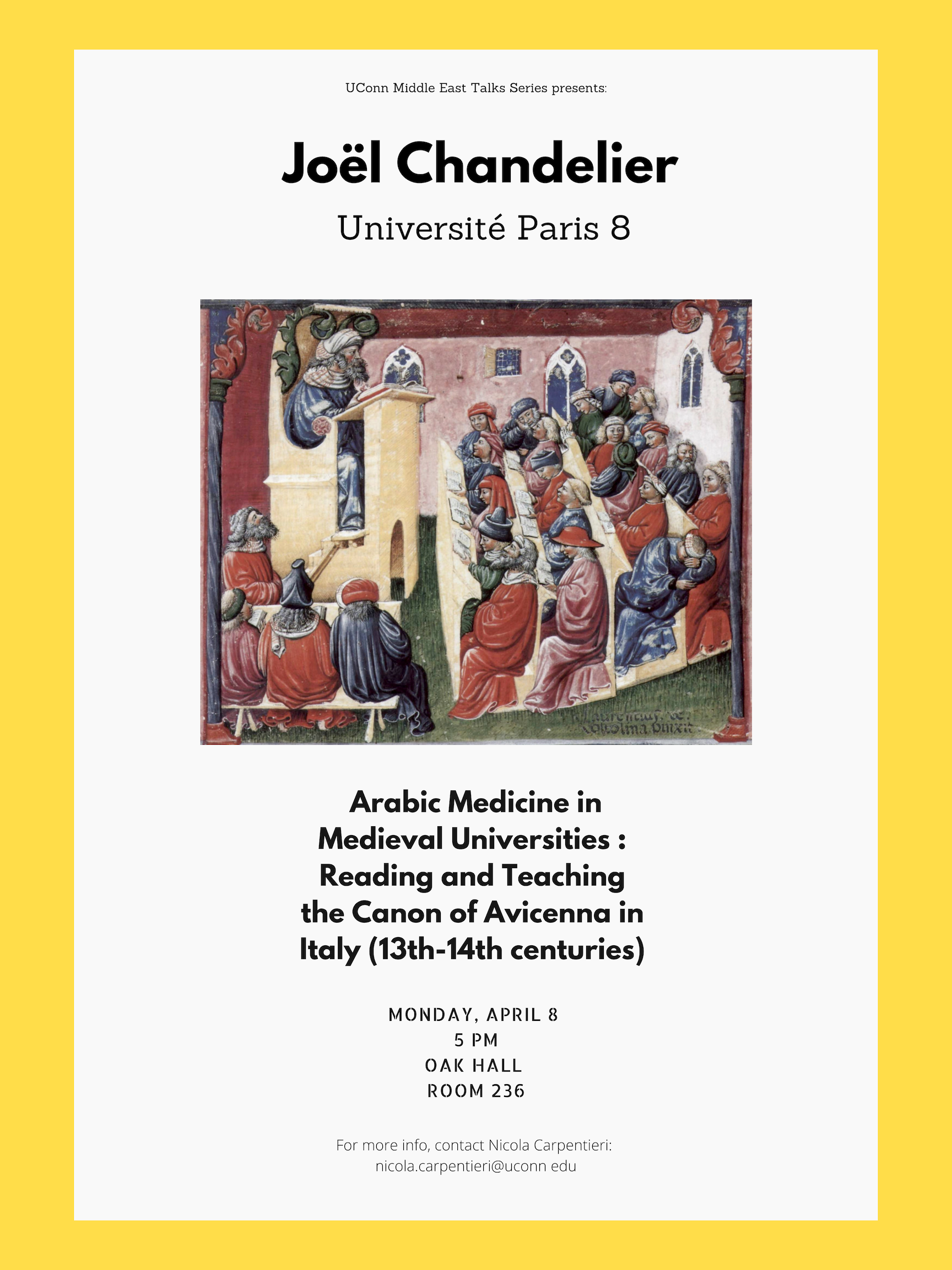
Extraordinary Racial Politics
Join a discussion with Lisa Lowe on Fred Lee’s new book.
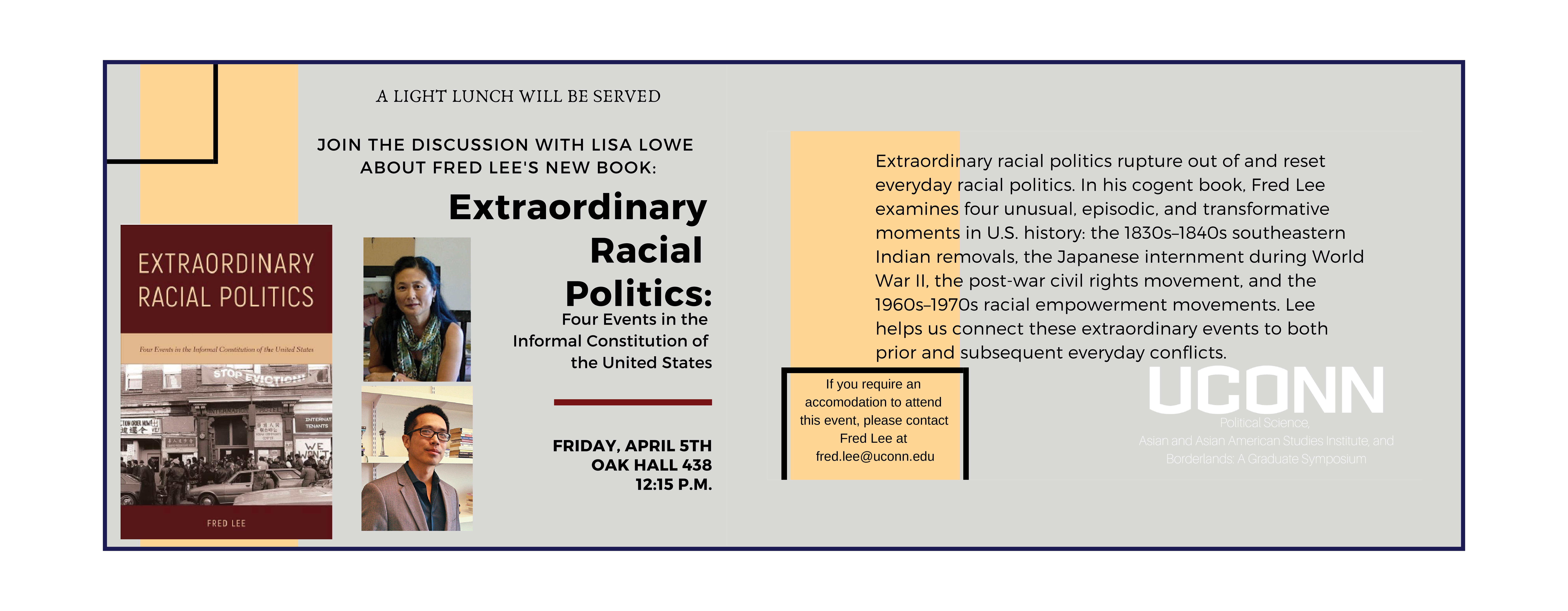
Sharon Harris Book Award 2019 Winners
Announcing the 2019 Mellon/ACLS Public Fellows Competition
The American Council of Learned Societies (ACLS) is pleased to announce the ninth annual competition of the Mellon/ACLS Public Fellows Program. This initiative places humanities PhDs in substantive roles in diverse nonprofit and government organizations, demonstrating that the capacities developed in the course of earning a doctoral degree in the humanities have wide application beyond the academy. The two-year fellowships carry an annual stipend of $68,000, health insurance, a relocation allowance, and up to $3,000 in professional development funds for the fellow.
In 2019, ACLS will place up to 21 PhDs as Public Fellows in the following organizations and roles:
• Alliance Theatre (Atlanta, GA) – Community Engagement & Audience Development Manager
• American Public Media (St. Paul, MN) – Senior Research Analyst
• Center for Court Innovation (New York, NY) – Communications Project Manager
• Chicago Humanities Festival (Chicago, IL) – Program Manager
• Citizens’ Committee for the Children of New York (New York, NY) – Policy & Budget Analyst
• Committee to Protect Journalists (New York, NY) – Research Manager
• Community Change (Washington, DC) – Policy Advisor
• Data & Society Research Institute (New York, NY) – Editor
• The German Marshall Fund of the United States (Washington, DC) – Program Officer
• Harriet Beecher Stowe Center (Hartford, CT) – Grants Manager
• Library of America (New York, NY) – Outreach Programs Manager
• National Conference of State Legislatures (Denver, CO) – Legislative Policy Specialist
• National Low Income Housing Coalition (Washington, DC) – Research Analyst
• Natural Resources Defense Council (Washington, DC) – Campaign Advocate, Latin America Project
• PEN America (New York, NY) – Festival Programs Manager
• Public Books (New York, NY) – Associate Editor
• Rare (Arlington, VA) – Community Engagement Manager
• Reinvestment Fund (Philadelphia, PA) – Policy Analyst
• San Francisco Arts Commission (San Francisco, CA) – Community Impact Analyst
• Seattle Office for Civil Rights (Seattle, WA) – Senior Researcher
• World Justice Project (Washington, DC) – Program Manager
Applicants must have a PhD in the humanities or humanistic social sciences conferred between September 1, 2015, and June 21, 2019, and must have defended and deposited their dissertations no later than April 5, 2019. US citizenship or permanent resident status is required. The deadline is March 13, 2019, 9 pm EDT.
Applications will be accepted only through the ACLS online application system.
Applicants should not contact any of the organizations directly. Visit ACLS Public Fellowship Competition for complete position descriptions, eligibility criteria, and application information. This program is supported by a grant from The Andrew W. Mellon Foundation.
Former UCHI fellow Helen M. Rozwadowski discussed her book “Vast Expanses: A History of the Oceans”
Former UCHI fellow Helen M. Rozwadowski discussed her book “Vast Expanses: A History of the Oceans” on “Time to Eat the Dogs” Podcast.
The William Benton Museum of Art featured in the Boston Globe
It’s streets lined with shops, galleries, boutiques, and eateries, the quaint old whaling village of Mystic has long been a Bostonian’s go-to day trip. If you did the aquarium last time, try the Mystic Museum of Art. By the banks of the Mystic River, the community art hub houses a permanent collection, rotating exhibits, and, through Dec. 22, a Holiday Gift Market. Shop sailor knot bracelets, ornaments, wine stoppers, pottery, handcrafted soaps, handcrafted jewelry, prints, and the like. Free admission. 9 Water St., Mystic, 860-536-7601. www.mysticmuseumofart.org.
Lauren Daley can be reached at ldaley33@gmail.com. Follow her on Twitter @laurendaley1.
Upcoming Events: Talk by Professor James Rice, “‘Early Modern’ and ‘Indigenous’ Histories”
The Early Modern Studies Working Group has a few exciting events in the next few weeks.
On March 7th, we are please to announce that Professor James Rice will be giving a talk titled “‘Early Modern’ and ‘Indigenous’ Histories.” The talk begins at 1pm and will be preceded by a lunch at 12:15. The talk will explore the intertwining questions of periodization, theories of historical causation, and identity. The ways in which scholars have traditionally periodized the ‘Early Modern’ match up with certain important turning points in Native American history, and that’s not a coincidence. Yet any attempt at marking the beginning and end dates of the Early Modern also serves to elide important continuities in Indigenous histories – elisions with significant consequences for the politics of today.
Professor Rice is the chair at the Tufts History Department and the Walter S. Dickson Professor of English and American History. His major publications are Tales from a Revolution: Bacon’s Rebellion and the Transformation of Early America (2012) and Nature and History in Potomac (2009). Currently, the Early Modern Cross Cultural Interactions Reading Group is reading Tales from a Revolution on Tuesday’s between 12-1 in the UCHI conference room. All are welcome to join.
On February 21st we will be holding our first transcribathon meeting in the UCHI conference room at 11am. As always, we will be transcribing John Ward’s diary along with a guest transcription. All are welcome.
Former UCHI fellow Melanie Meinzer has written a chapter in newly published book “Palestine and Rule of Power”.
Announcing the 2019 Mellon/ACLS Public Fellows Competition
Mellon/ACLS Public Fellows Program – 2019 Fellowship Competition
The American Council of Learned Societies (ACLS) is pleased to announce the ninth annual competition of the Mellon/ACLS Public Fellows Program. This initiative places humanities PhDs in substantive roles in diverse nonprofit and government organizations, demonstrating that the capacities developed in the course of earning a doctoral degree in the humanities have wide application beyond the academy. The two-year fellowships carry an annual stipend of $68,000, health insurance, a relocation allowance, and up to $3,000 in professional development funds for the fellow.
In 2019, ACLS will place up to 21 PhDs as Public Fellows in the following organizations and roles:
• Alliance Theatre (Atlanta, GA) – Community Engagement & Audience Development Manager
• American Public Media (St. Paul, MN) – Senior Research Analyst
• Center for Court Innovation (New York, NY) – Communications Project Manager
• Chicago Humanities Festival (Chicago, IL) – Program Manager
• Citizens’ Committee for the Children of New York (New York, NY) – Policy & Budget Analyst
• Committee to Protect Journalists (New York, NY) – Research Manager
• Community Change (Washington, DC) – Policy Advisor
• Data & Society Research Institute (New York, NY) – Editor
• The German Marshall Fund of the United States (Washington, DC) – Program Officer
• Harriet Beecher Stowe Center (Hartford, CT) – Grants Manager
• Library of America (New York, NY) – Outreach Programs Manager
• National Conference of State Legislatures (Denver, CO) – Legislative Policy Specialist
• National Low Income Housing Coalition (Washington, DC) – Research Analyst
• Natural Resources Defense Council (Washington, DC) – Campaign Advocate, Latin America Project
• PEN America (New York, NY) – Festival Programs Manager
• Public Books (New York, NY) – Associate Editor
• Rare (Arlington, VA) – Community Engagement Manager
• Reinvestment Fund (Philadelphia, PA) – Policy Analyst
• San Francisco Arts Commission (San Francisco, CA) – Community Impact Analyst
• Seattle Office for Civil Rights (Seattle, WA) – Senior Researcher
• World Justice Project (Washington, DC) – Program Manager
Applicants must have a PhD in the humanities or humanistic social sciences conferred between September 1, 2015, and June 21, 2019, and must have defended and deposited their dissertations no later than April 5, 2019. US citizenship or permanent resident status is required. The deadline is March 13, 2019, 9 pm EDT.
Applications will be accepted only through the ACLS online application system.
Applicants should not contact any of the organizations directly. Please visit www.acls.org/programs/publicfellowscomp/ for complete position descriptions, eligibility criteria, and application information. This program is supported by a grant from The Andrew W. Mellon Foundation.
www.acls.org
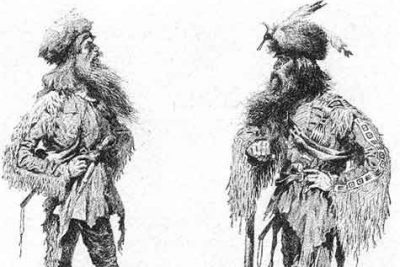
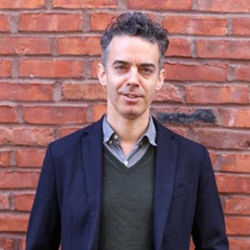
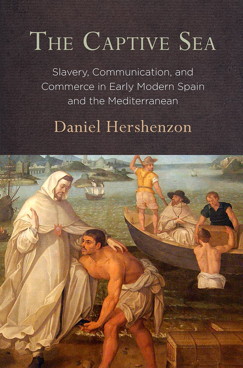 The Harris Book Award Committee notes, “Prof. Hershenzon’s book is an illuminating study of the redemption of captives in the early modern Mediterranean. The Captive Sea traces the seizure of Christians and Muslims by pirates, their enslavement in hostile lands, and their occasional return through complicated systems of ransom. Deeply researched in Spanish archives, the book examines the flourishing of a slave system that differs from the Atlantic slave trade, and it shows the ways in which the trade in captives encouraged intercultural communication between Southern Europe and North Africa.”
The Harris Book Award Committee notes, “Prof. Hershenzon’s book is an illuminating study of the redemption of captives in the early modern Mediterranean. The Captive Sea traces the seizure of Christians and Muslims by pirates, their enslavement in hostile lands, and their occasional return through complicated systems of ransom. Deeply researched in Spanish archives, the book examines the flourishing of a slave system that differs from the Atlantic slave trade, and it shows the ways in which the trade in captives encouraged intercultural communication between Southern Europe and North Africa.”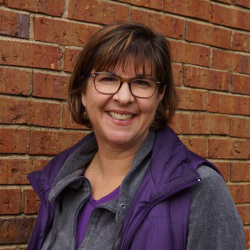
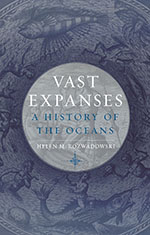 “Prof. Rozwadowski’s book is an engaging overview of the oceans from deep prehistory to the present. It focuses on the relationship between people and an environment that once seemed beyond human influence. The idea of the ocean as a limitless frontier flourished but eventually withered in the late twentieth century, as people began to confront the damage they had done through pollution and overfishing. In order for us now to produce positive environmental change, Rozwadowski concludes, “We must jettison our perception of the ocean as a timeless place, apart from humans.” This concise and readable book demonstrates the value of the humanities in addressing the planet’s looming environmental crisis.”
“Prof. Rozwadowski’s book is an engaging overview of the oceans from deep prehistory to the present. It focuses on the relationship between people and an environment that once seemed beyond human influence. The idea of the ocean as a limitless frontier flourished but eventually withered in the late twentieth century, as people began to confront the damage they had done through pollution and overfishing. In order for us now to produce positive environmental change, Rozwadowski concludes, “We must jettison our perception of the ocean as a timeless place, apart from humans.” This concise and readable book demonstrates the value of the humanities in addressing the planet’s looming environmental crisis.”




